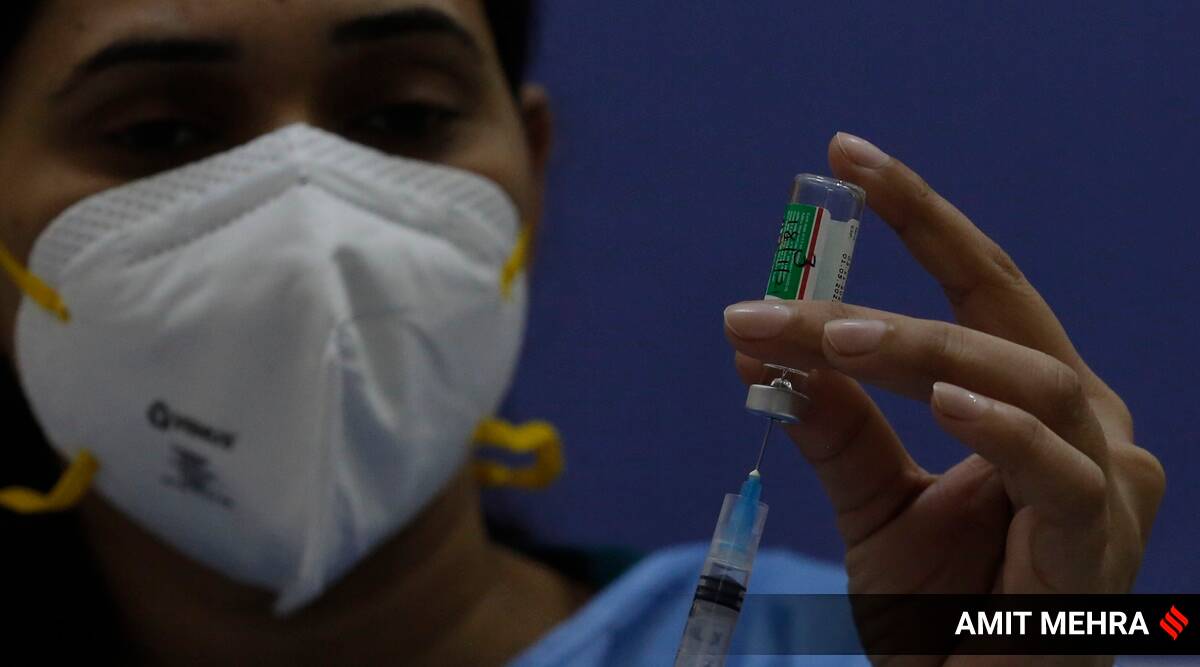Neutralising antibody responses against COVID-19 variants of concern (VoC) are higher in Covishield recipients than those who took Covaxin, according to a new study. Not only that, seropositive individuals (those who were already infected and had recovered from Covid before the first dose of vaccination) showed a higher response compared to seronegative individuals.
Covishield elicited immune responses of a higher magnitude and breadth than Covaxin in both Covid seronegative individuals and seropositive individuals. “Our study findings indicate that a higher frequency of Covishield recipients show presence of antibodies post-vaccination as compared to Covaxin,” says Dr Vineeta Bal, noted immunologist from the Indian Institute of Science Education and Research (IISER), Pune and one of the study authors.

Titled “Interim results from comparison of immune responses elicited by an inactivated and a vectored SARS-CoV-2 vaccine in seronegative and seropositive participants in India”, the study was published as a preprint on medRxiV on Friday. “This is a longitudinal, multi-centre study that has tried to provide data on relative abilities of two commonly used vaccines, Covishield and Covaxin in India,” Dr Bal adds.
This study addresses two main questions. The first is does the vaccine outcome vary if the individuals were already infected and had recovered from Covid before the first dose of vaccination [seropositive] or not [seronegative]? The second question was about the relative strength of the two vaccines in terms of their ability to trigger antibody responses. “We tried to find what proportion of individuals receiving two doses generate antibody response and whether the amount of antibody generated in Covaxin and Covishield recipients is comparable,” Dr Bal explains.While after the first and second dose of Covishield, concentration of antibodies increased in seronegative individuals by 2.1 and 7.6 fold, Covaxin did not attain such high levels of antibodies, the study found.
Does that mean we need another booster dose? Says Dr Bal, “Personally, in today’s date, I do not think a booster dose — a precautionary one, third or fourth — whether by the same vaccine or another vaccine, is necessary for the young adult population [18-60 years]. A huge proportion has developed ‘hybrid immunity.’ For special categories, such as the immunocompromised, who may not respond well to vaccines in general, a booster might be considered. For the 5-18 year age group also vaccination has been very patchy. They do not have the advantage of developing ‘hybrid immunity.’ A standard protein-based vaccination with an approved vaccine is what should be prioritised for this group,” the expert adds.
The clinical cohort included volunteers who had already been infected with SARS-CoV-2 in addition to those never infected. Dr Anu Raghunathan, senior principal scientist from CSIR-NCL and principal investigator of the VISION (Vaccine Immunology Studies – Indian Outbreak-response Network) at NCL, says that the breadth and potency of responses was higher with Covishield than with Covaxin against SARS-CoV-2 VoCs. Also, seropositive individuals showed a higher response compared to seronegative individuals.
In India, the COVID-19 vaccination drive in the 18 to 45-year age-group began in April 2021 when seropositivity rates in the general population were rising following the Delta wave in April-May 2021. Because vaccination in the young adult population was initiated after the Delta wave [April-May 2021], some of the vaccine recipients factored in this study had been possibly already infected and recovered.
Between June 30, 2021 and January 28, 2022 , a total of 691 participants in the 18-45 age group were enrolled across four clinical sites in Pune and rural Bengaluru. The study collaborators included Christian Medical College, Vellore, National Centre for Biological Sciences, Bengaluru, DBT- National Centre for Cell Sciences, Pune,CSIR- National Chemical Laboratory, Pune, St. John’s Research Institute, Bengaluru,Indian Institute of Science Education and Research, Pune, among others.
As per the prevailing government norms, participants received either two doses of Covaxin at 28 days apart or two doses of Covishield three months apart.
Most Read 1Chandrayaan-3 mission: Dawn breaks on Moon, all eyes on lander, rover to wake up 2As Indo-Canadian relations sour, anxiety grips Indian students, residents who wish to settle in Canada 3Karan Johar says Sanjay Leela Bhansali did not call him after Rocky Aur Rani: ‘He’s never called me but…’ 4Gadar 2 box office collection day 40: Hit by Shah Rukh Khan’s Jawan onslaught, Sunny Deol movie ends BO run with Rs 45 lakh earning 5Shubh’s tour in India cancelled: Why is the Canada-based singer facing the music?
The Omicron wave in early 2022 overlapped with the second dose of vaccine at two sites and with both doses at one site. Participants were sampled at six timepoints for antibody analyses and at four time points for cellular analyses. At all the time points tested, geometric mean titers (GMTs) in the Covishield arm were higher than in the Covaxin arm.
The timing of vaccination relative to the Delta and Omicron waves that are circulating variants of concern potentially impacted the antibody titre or humoral immune response. Thus there were cohort and site-specific differences in immune responses in the study consortium.
Also ReadRight or left arm? What is the right way of measuring BPHow a German hospital used ayurveda as supportive therapy to help Parkins…What if I cannot sleep more than 5 hours despite my best efforts? How to …Count your carbs: How much rice can a diabetic have? Is brown rice better…
Overall, for both cohorts in Pune, seroconversion was much lower for both vaccines in seropositives; however among the two vaccines, Covishield performed better. Most of the individuals who were infected earlier did not respond to Covaxin, says Dr Akanksha Chaturvedi, immunologist from DBT-NCCS. For the seronegative individuals, both vaccines increased antibody titers. But the increase was significant for Covishield, Dr Raghunathan points out.
© IE Online Media Services Pvt Ltd


